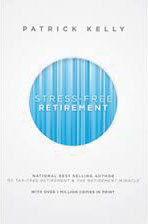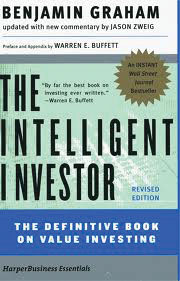Wealth management guide for every age
So let’s save it! Not sure where your financials stack up? It’s an important topic at any age, which is why we recruited three Columbia financial professionals to tell you exactly what red flags you should be looking for.
20s
• Pay yourself first. Defer at least what your company’s retirement plan is matching; it’s free money. Add 1 percent more each year when you get your raises until you get to 15 percent or the maximum amount you can contribute. If your plan has a Roth provision, select that for deferral, and if the plan does not have a Roth provision, still defer up to the match, and open a separate Roth IRA.
• A 401(k) is not a true savings account but a retirement investment account that is subject to market vulnerability. Don’t limit yourself to this one strategy.
• Obtain true diversity by utilizing growth within a high-cash-value whole-life policy. You will be able to access the growth at any age (not having to wait until 59 ½ like you do with a 401(k)) and utilize withdrawals and their growth tax free.
• Use your 20s to eliminate loans that you might have. Becoming debt free is important when planning the rest of your financial life. Whether you believe in aggressively paying off loans or starting with your smallest loan first, get them paid off.
• Spend less than you make. Use budgeting as a means to keep yourself informed about where your money is going. If you spend it on paper first, then the plan is in place before the actual dollars hit your bank account. Savings outside of your 401(k) should be part of this plan.
• If you use a credit card, do not carry a balance. Pay it off every month. This helps build credit without getting you into trouble. You do not need more than one credit card. If you are practicing other ways of building credit, rely solely on a debit card instead of a credit card.
• Paying utility bills and rent on time doesn’t affect your credit score, but you can use that history to purchase a home or a car.
• Make sure your company offers disability insurance. If not, meet with an insurance professional for quotes. You are at a much higher risk of becoming disabled than dying.
30s
• Even the smallest amounts in a diversified fund portfolio will build over time. Compounding interest and the time value of money greatly enhance those small routine investments.
• Quick trick: Learn the Rule of 72, which will help determine how long it will take for investments to double at a given interest rate.
• A safe down payment percentage on a home is 20 percent.
• If you have enough saved for a down payment, purchase a home. It is an investment, and those payments will build equity.
• Make sure to have sufficient life insurance. Look into term life insurance with an umbrella policy, which is inexpensive but important.
• If you have children, start saving for their education but not until you are putting a sufficient amount into retirement (10 to 15 percent of your overall income).
• Develop a relationship with a financial adviser, especially when it comes to investing. Building a team of financial professionals around you will greatly enhance your ability to be financially secure.
40s
• Begin forecasting your retirement with an adviser.
• If you have not done so already, make sure you have met with an attorney to have estate-planning documents prepared and executed to protect the distribution of your assets after you die. Or select who becomes in control of your assets if you become incapacitated (power of attorney). If these documents are not in place, the state will decide for you.
• At minimum, you will need:
-A will
-Durable general power of attorney
-Health care directive
-Trust, if warranted, which can be determined by you and your attorney when you meet to discuss your assets
• At this age, you are entering the retirement hazard zone and need to make sure the nest egg you have worked on all your adult life isn’t lost or greatly diminished in the next market correction. Seek a second opinion from the traditional stock market-based investment strategies of “buy low, sell high” and “hold and ride it out in the market.”
• Carry sufficient insurance on homes, cars, jewelry, etc.
50s
• Continue forecasting for retirement with an adviser who is specific to this type of money management. Just as we change physicians from a pediatrician to family medicine to specialists, as we age, we need to make sure our financial adviser specializes in preretirement and retirement strategies. If you don’t change your strategies from accumulation phase to preservation with growth and distribution phase, your retirement can be radically challenged.
• Safe approaches that protect your nest egg from the unsecure market are available and need to be implemented in this phase of your financial life.
• If everything else is in place, your mid- to late 50s are when you should start getting quotes on long-term care insurance. The cost of long-term care is high, and if this has not been planned for, it can blow up a person’s financial plan, especially during those retirement years. Different strategies can be discussed with a reputable insurance professional at that time.
Financial Professionals:
Jason Ingram | CEO, regional director of Accelerated Wealth in Columbia
After years of constructing mergers and acquisitions and working in the world of corporate and individual finance, Jason decided to leave corporate America and start his own company. He opened Accelerated Wealth with the beliefs of matching wealth strategy to the financial time of life and making sure that as clients approach retirement, they can’t lose the nest egg they have worked hard to build. He specializes in retirement planning and is certified in both IRA strategies and senior retirement strategies.
Polly Reynolds | Vice president and trust officer at The Trust Co.
Polly had the opportunity to open the first branch office of The Trust Co. in Columbia after she had built up a career in the finance world. She graduated with a bachelor’s degree in accounting and passed her CPA exam before working at Kemper CPA Group in Evansville, Ind. While there, she helped build the company’s wealth management division, Kemper Capital Management, until she moved to Columbia. She took a position as vice president and trust officer at a local bank prior to her current position.
Kevin Adam | Owner of Forward Financial LLC
Kevin has more than 20 years of experience under his belt, a bachelor’s degree in economics from the University of Kansas and an MBA from the University of Missouri. Plus, he graduated from Advisory University and completed coursework focused on income tax, retirement, investments and estate planning from The American College, which he uses to serve clients in the mid-Missouri area.
Suggested literature:
 The Richest Man in Babylon by George Samuel Clason
The Richest Man in Babylon by George Samuel Clason
 Stress-Free Retirement by Patrick Kelly
Stress-Free Retirement by Patrick Kelly
 The Intelligent Investor by Benjamin Graham
The Intelligent Investor by Benjamin Graham



